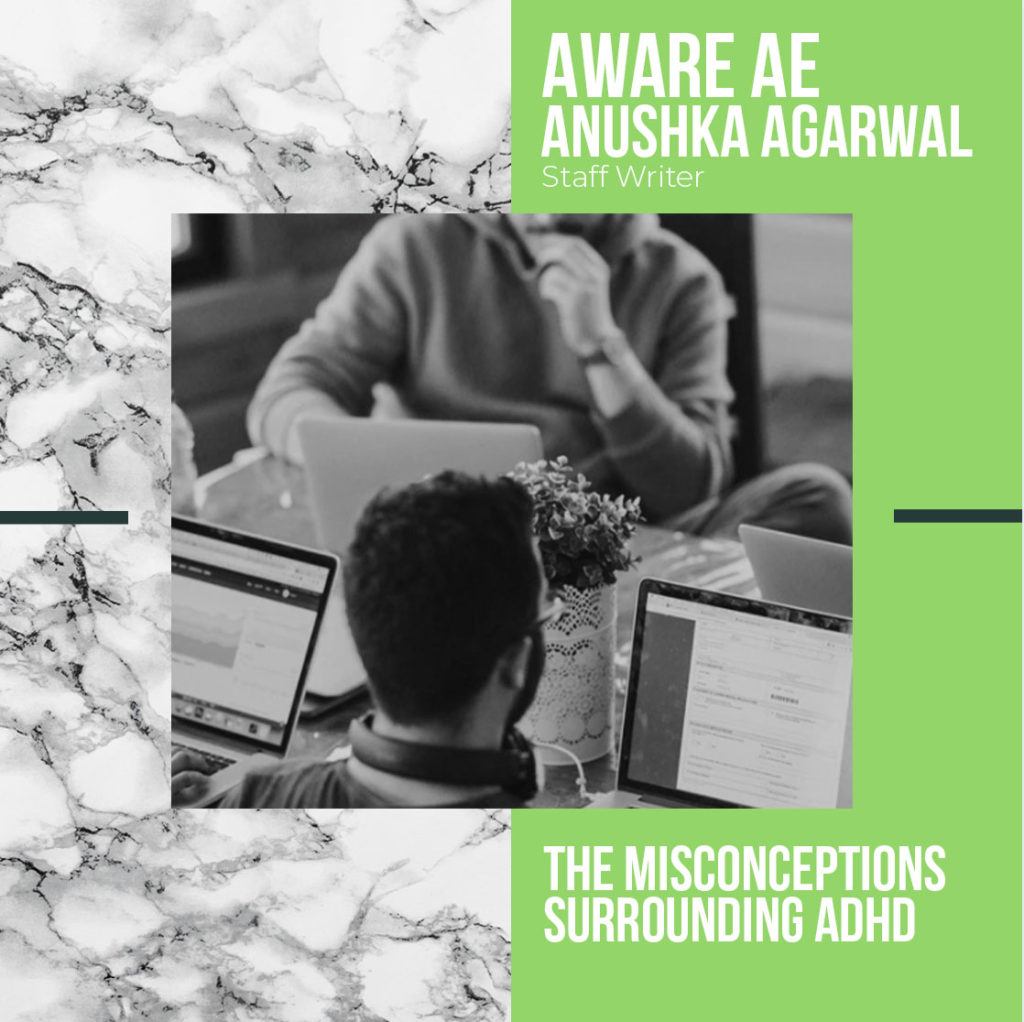Disclaimer: If you, or someone you know, feel like you are experiencing symptoms of ADHD, please seek the help and guidance required.
ADHD is a very common neurodevelopmental disorder which is often diagnosed during childhood and lasts till adulthood. Individuals with ADHD may find themselves being overly active, having trouble paying attention, and containing impulsive behavior without regarding the consequences.
Children with this diagnosis do not simply grow out of the behaviors listed above. Instead, the symptoms can continue and cause many difficulties at home, at school, or with friends.
Hence, as is with many other mental disorders, ADHD has a multitude of misconceptions that surround it and may even be detrimental to how it is perceived by the general public. These misconceptions can easily lead to delays in diagnosis and treatment.
According to the National Alliance of Mental Illness (NAMI), about 9 percent of children have ADHD, while around 4 percent of adults have it. In fact, someone you know may even have it. Hence, it is critical to differentiate between the truths and misconceptions of ADHD.
Common Myths
- “Having ADHD is not that serious” – While it is not life threatening, individuals with ADHD still face frequent anxiety and sometimes follow the pattern of substance abuse. Thus, having a severe effect on an individual’s quality of life.
- “People with ADHD cannot focus at all” – It is more accurate to describe the attention deficit as a difficulty regulating attention rather than not having the ability to pay attention. In fact, it is not uncommon for an individual with ADHD to be completely submerged in a task they enjoy as such a level of hyper focus can be an indicator to determine if someone has ADHD.
- “ADHD is not a real disorder” – This is one of the most common misconceptions as many people still believe that it is not a valid diagnosis. However, ADHD is recognized globally by many credited institutes such as the Centers for Disease Control and Prevention and the American Psychiatric Association (APA). A contributing factor to this is that symptoms are not always clearly defined among individuals. Symptoms of ADHD can also resemble those of other conditions.
- “Medication can cure ADHD” – Although medication can help manage symptoms, it cannot mitigate the disorder completely. ADHD is a lifelong and chronic condition. Individuals with this disorder often start to develop coping strategies and organizational methods that help them work through ADHD. These skills can be paired with medication to ensure the best possible outcome.
These myths about ADHD are just a few that exist, and we must avoid making such misconceptions. Awareness and understanding can help combat such unique conditions faced by individuals as well as their loved ones. This is a disorder that affects every area of a person’s life. While it cannot be cured, it can be effectively managed. Hence, it is important to never assume things about such critical disorders that affect a multitude of individuals!
